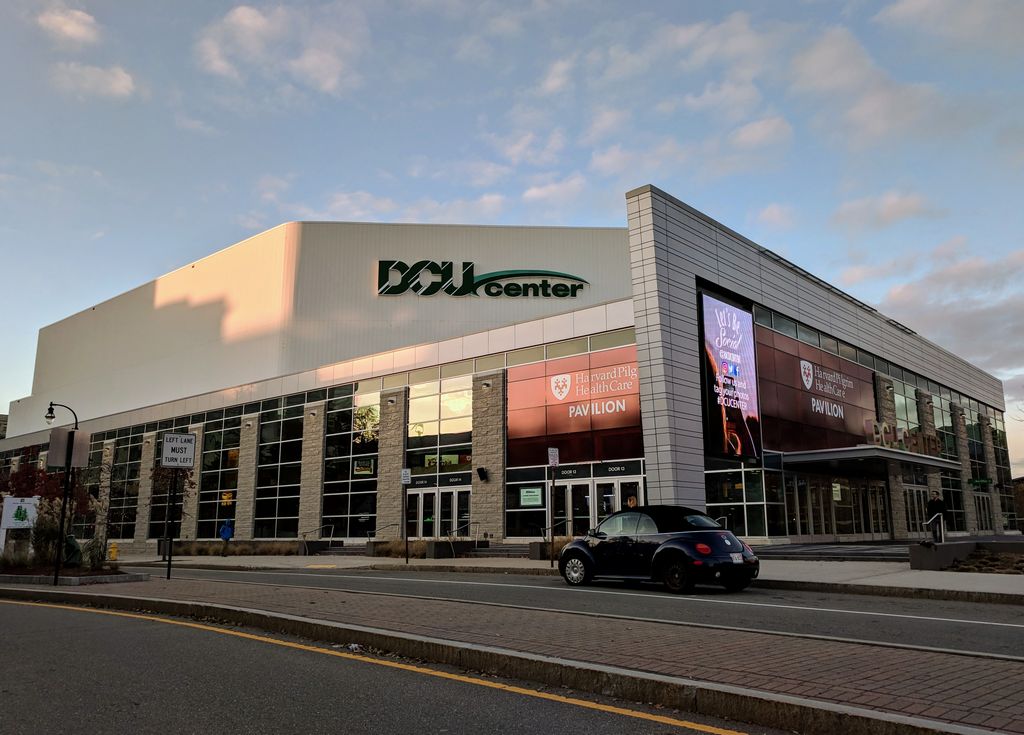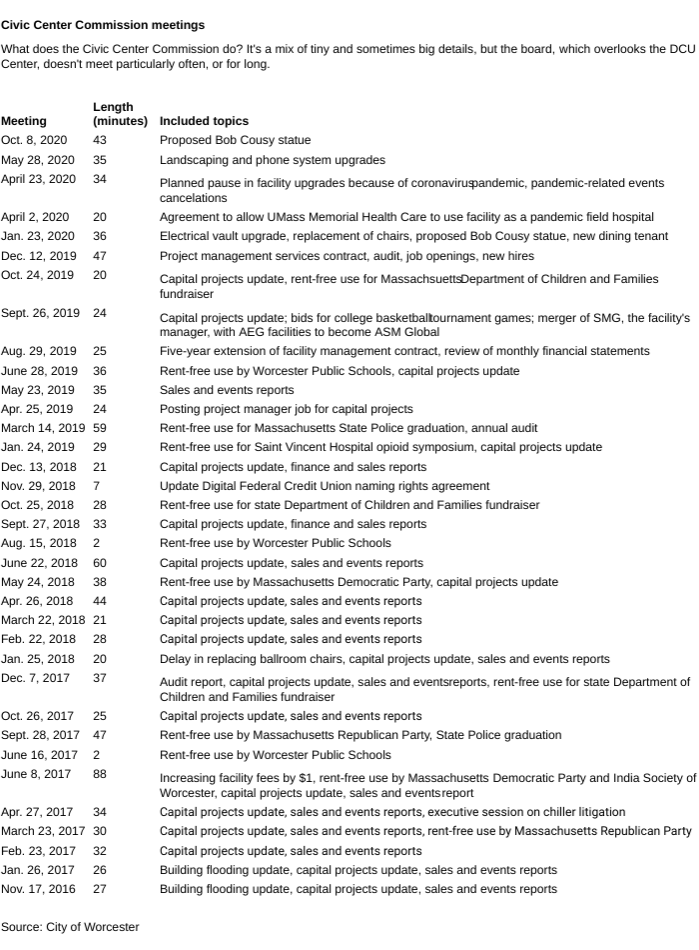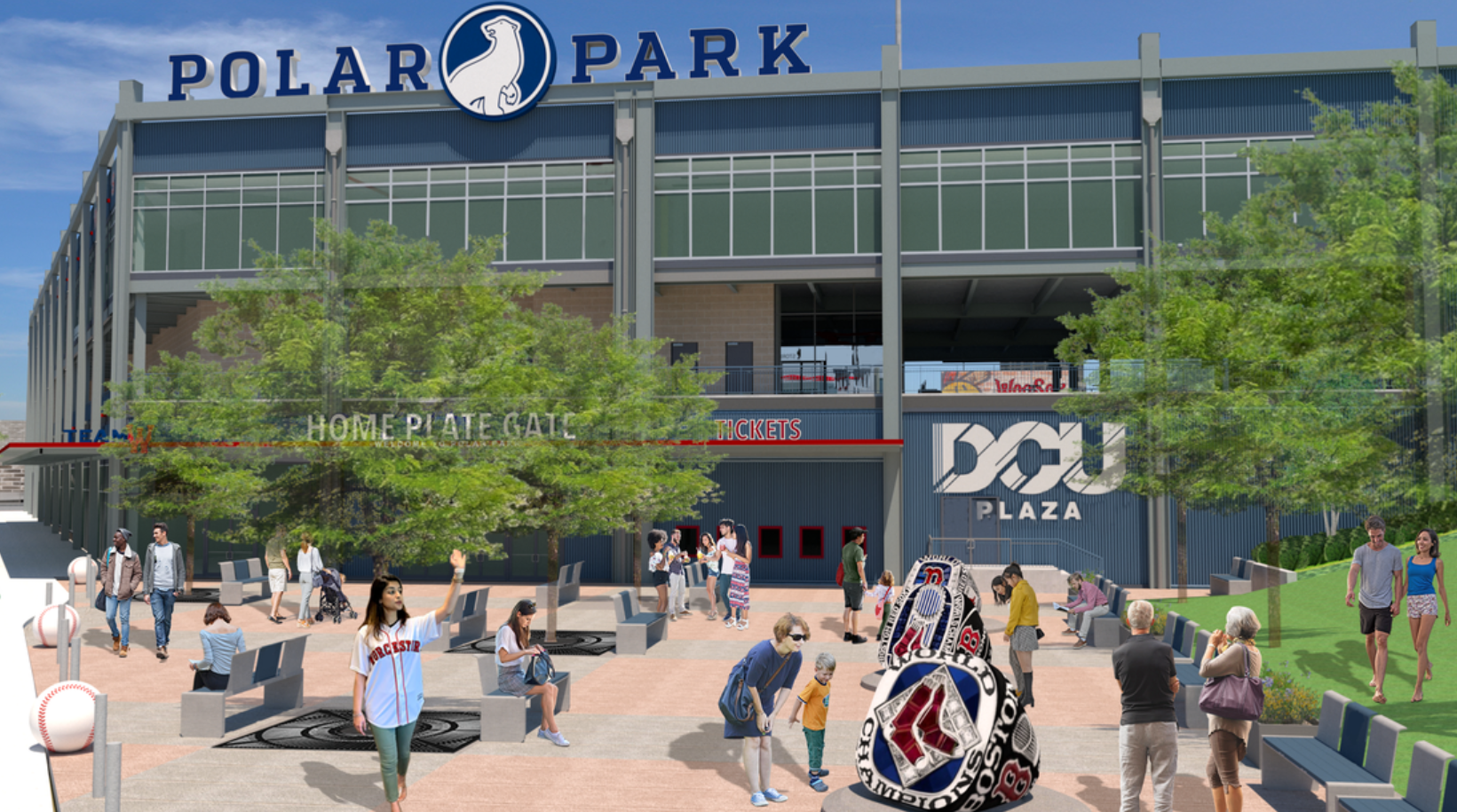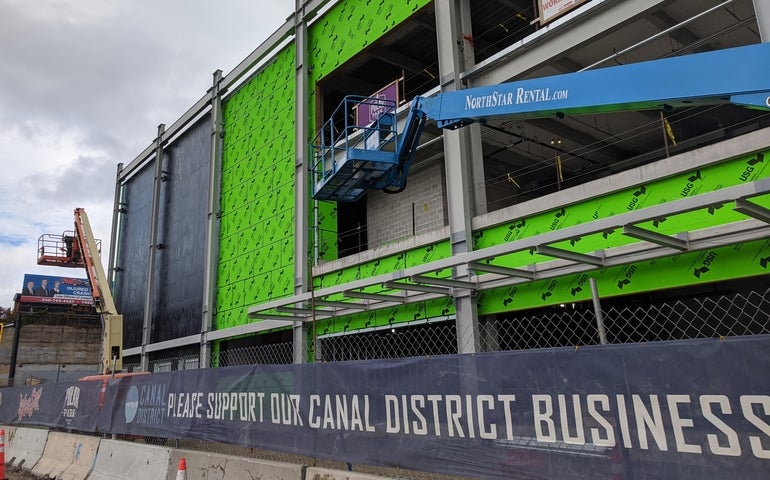The Worcester City Council has pushed back against the city manager’s proposal to create a Worcester Ballpark Authority, with councilors expressing concern about giving up oversight of the $132-million Polar Park stadium and $23-million nearby parking garage to an unelected board.
City Manager Edward Augustus defended the proposal by saying the city already had similar volunteer boards in place for its library, health department, cemetery and the DCU Center, all designed to handle the minutiae of running a public facility not rising to the level of needing full City Council review. The ballpark authority would also provide additional transparency, Augustus said.
“By and large, it works pretty well,” Augustus said of the autonomous nature of most city boards, in an interview this week with the WBJ.
Specifically, in his appeal to the council, Augustus pointed to the Civic Center Commission, since its management of the 15,000-seat DCU Center is similar to how the proposed Worcester Ballpark Authority would manage the 9,508-capacity Polar Park.
To understand what topics the Civic Center Commission deals with and how transparent the board is, the WBJ reviewed the last four years of Civic Center Commission meetings – 35 in all – to better gauge the type of work the Polar Park board might be expected to review.
Turns out, overseeing the largest arena and convention center in Central Massachusetts is rarely high-profile or glamorous work.
The Worcester Civic Center Commission will sometimes help decide big-ticket items such as tens of millions of dollars in planned upgrades in the coming years. More often, its five volunteer members hear about far more mundane topics: landscaping work, electrical vault or boiler replacements, or phone system upgrades.

In 2019, the Civic Center Commission met for just under five hours in total. It was even less the year before, with meetings often every month or two, and lasting just over half an hour on average. Twice, the board has met for a total of just two minutes: to allow Worcester Public Schools to use the arena rent-free for a day for a staffwide meeting before the school year began.
At most meetings, the only votes the commission takes is to approve minutes of previous meetings – which provide accounting of past actions – and then later, to adjourn. The board typically gathers to hear updates from the DCU Center’s management firm, part of an international firm ASM Global. They are often monotonous, with similar updates time and again on the same boiler replacement project or Wi-Fi upgrade, for example.
Limited power over funding, less transparency
The ballpark board, like its DCU Center counterpart, wouldn’t have absolute power over funding, Augustus said.
The Civic Center Commission, for example, reviews capital projects that first have to be approved by the City Council as part of the city’s annual capital budget, a document largely created by the city administration and brought to the City Council for review. The facility uses revenue from a special tax district surrounding the facility that collects taxes from hotels, meals and retail sales, and revenue from the city-owned parking garage on Major Taylor Boulevard.
In Polar Park’s case, tax revenue from surrounding properties expecting to generate about $150 million over 30 years will go toward paying off the city’s debt for the ballpark or to a capital fund – not to anything where the Ballpark Authority would have discretion to spend money as it wishes, Augustus said.
Still, the Ballpark Authority will be autonomous from the City Council, Augustus said. Like counterparts overseeing improvements at the library or senior center, it will have its own power to make decisions on those projects, with input from the administration’s asset management staff.
Councilors have been reluctant to give up control over the ballpark and questioned whether oversight for the project ought to be in the hands of a board whose members will be appointed by the city manager and serve for five-year terms.
“I just get a little hesitant about creating another board,” Councilor Donna Colorio said at an Oct. 6 meeting. “It just doesn’t sit right with me.”

Another councilor, Morris Bergman, said in an interview he wants the City Council to review Polar Park matters because of the project’s cost and significance, even if it means sometimes voting on mundane items. He said he’s hoping for an advisory board instead, which could recommend actions to the council, which would keep its power and accountability over a project it approved two years ago.
“We don’t want to insulate ourselves by saying the board made the call, and not us,” Bergman said.
Although several members objected to the new authority, the council still voted to refer the matter to its economic development committee for potential approval.
Augustus said the proposed Worcester Ballpark Authority would take up the task of approving relatively mundane items – giving as an example the color of window drapes – and provide transparency for both Polar Park and a planned 340-space parking garage planned to be built across Madison Street from the stadium.
“This board would allow for some transparency in the decision-making process,” Augustus told the City Council.
The Civic Center Commission doesn’t operate with an especially high amount of transparency, at least compared to the higher-profile City Council.
Its members, for example, aren’t listed on the city website, only in meeting minutes. That information doesn’t include when their terms expire. The current commission members are listed on the DCU Center website, although the length of their terms is outdated.
Minutes of past Civic Center Commission meetings are on the city’s website, though not particularly easy to find. Most, but not all, of its meetings are recorded and available to watch on the city’s website. Presentations to the commission are not available, unlike most documents presented to the City Council that remain on the city’s website.
Polar Park details
Public details on the $132-million Polar Park project haven’t been particularly easy to come by, either. The last time the City Council was updated on the cost of the project was in January, when the expenses increased from $101 million to $132 million.
“We want to be careful on this massive project, probably the biggest development project in the history of Worcester,” Councilor Gary Rosen said at the Oct. 6 meeting.
In May, councilors asked Augustus for details on how the ballpark project has been affected by the coronavirus pandemic and what penalties the city may incur if the park doesn’t open on time.
“I can say with confidence there will be impacts, and we will share them with the council when we fully understand,” Augustus told the council in May.
Five months later, the project costs have not been updated, although Augustus told the council in its meeting on Sept. 22 the ballpark would open by its April 2021 deadline, crediting a Herculean effort by the construction team.

That Sept. 22 council meeting also included an update on the proposed hotel, apartment and commercial development surrounding the stadium by Boston-based Madison Properties, including the city having finalized the deal to transfer the property for the ballpark to the city after an 18-month delay.
As for the new costs of the ballpark, the city said the councillors who requested the information back in May have apparently been provided the update privately.
“The City receives approximately 900 Council Orders in a given year. Many of these items are resolved through conversations with the appropriate Councilor or through a departmental action as opposed to a follow-up report,” the city said in a statement, referring to responses that wouldn’t be public.
Next steps toward Worcester Ballpark Authority
The Worcester Ballpark Authority would be created using the same city ordinance as the one that created the Board of Health, whose authority has become a sticking point with at least one city councilor: Rosen.
“Oh, I wish I could take this vote back,” Rosen said at the Oct. 6 meeting, of the council’s approval of remaking the Board of Health in 2014 with greater authority. “Look at the problems now, and our hands are tied, unfortunately.”
Rosen didn’t explain what the Board of Health has done that has concerned him. He didn’t return a message from WBJ seeking comment. The board made headlines this summer when it took up the issue of police reform related to race and discrimination, and in 2015 approved a needle-exchange program, which can often be controversial.
Councilors have been so cautious about forming the Ballpark Authority they asked the city administration to describe what legal authority could exist to later abolish the authority or remove members if needed. The city manager, not the City Council, would have the power to abolish the board. The manager would not be able to remove an authority member solely based on a vote or a position taken.
In choosing the members of the Worcester Ballpark Authority, if it is created, Augustus said in an interview with WBJ he isn’t looking for anyone with particular expertise — former public officials, or someone with a background in construction or public procurement processes, for example — but instead what he described as fair-minded people who want to make a difference.
The council’s economic development committee is set to review the Ballpark Authority proposal and make a recommendation to the City Council.

